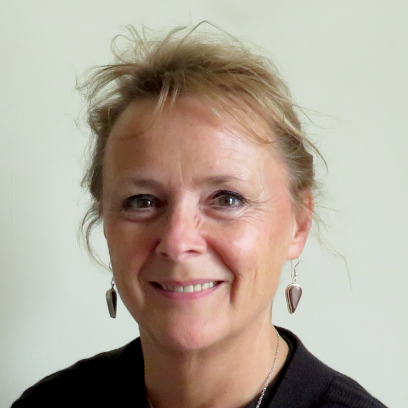Anxiety
Anxiety results from the body's natural reaction to dangerous, threatening and stressful situations. The body prepares itself to fight or run away, known as the 'fight or flight' response. Your heart rate will increase and you may get sweaty palms as well as a number of other symptoms. It may be that your body is responding to physical harm such as an approaching car, or something stressful such as exams, a job interview or meeting new people.
While these responses are absolutely normal in the short term to protect you from harm, feelings of anxiety can sometimes go on for a long time – long after the harm has gone away. When anxiety lasts a long time and starts to have an impact on everyday life you may be suffering from an anxiety disorder.
The main types of anxiety disorder
Post-traumatic stress disorder (PTSD): PTSD is an anxiety disorder that usually arises after experiencing or witnessing a traumatic event. People with PTSD may feel haunted by persistent memories, dreams and images as well as flashbacks of the traumatic event/s. You may have heard about soldiers who have come back from wars who develop PTSD. However, any traumatic event can trigger it, e.g. witnessing a crime or car accident.
Generalised anxiety disorder (GAD): People with GAD worry constantly about everyday things or about what might happen in the future.
Social anxiety disorder: This type of anxiety can cause you to feel anxious or worry about social interactions. It may be triggered during a specific social encounter or in anticipation of it or by social situations generally.
Obsessive-compulsive disorder (OCD): Obsessive-compulsive disorder is a sub-type of anxiety disorder. For more information, see our page on OCD.
Panic attacks: Panic attacks are an extreme response to anxiety during which people will experience a sudden and intense period of the body's anxiety response – uncontrollable fast, shallow breathing, racing heart and sweating. Attacks will typically last between 5 to 10 minutes and can be extremely scary. People often think they are having a heart attack, going mad or feel unable to breathe. After such an experience it is common to develop a 'fear of fear'. This is when you become anxious about experiencing another panic attack. You may become acutely aware of potential triggers and signs that another attack may be imminent.
Symptoms of anxiety
There are many physical and psychological symptoms of anxiety (see below). You may experience some or all of them to varying degrees of severity.
Physical symptoms
Physical symptoms include: a racing heart; sweating; fast, shallow breathing; chest pains (can't breathe); dizziness; headaches; needing the toilet frequently / urgently; sore or upset stomach; shaking; dry mouth; difficulty swallowing; and sleep problems.
Psychological symptoms
Psychological symptoms include: feeling tense, wound up; becoming irritated or angry quickly; feeling out of control; feeling detached from your surroundings; worrying continually; and difficulty concentrating on tasks.
Causes of anxiety
Anxiety can occur for a wide variety of reasons or may seem to come out of the blue. Where the cause is not clear to you, talking to a therapist who is more familiar with common triggers of anxiety may be helpful.
Some of the common causes of anxiety are: ongoing stress (e.g. pressure at work or from family life); stress from particular situations (e.g. losing your job or moving house); experiencing childhood abuse (physical, psychological or sexual); witnessing or being involved in a traumatic event.
Dealing with anxiety at home
There are a number of everyday things you can do to help cope with and reduce/manage anxiety.
Exercise: A huge amount of recent research has shown that exercise is effective in reducing and overcoming anxiety. Exercising will distract your mind and release tension. If you become easily irritated or angry then vigorous exercise such as running, boxing or squash will get your heart beating and release pent up tension. However more gentle forms of exercising such as yoga,tai chi, etc will help regulate breathing and improve relaxation. Intense exercise is sometimes recommended for people who suffer from panic attacks as you will start to realise that feeling out of breath is not a sign of heart failure but completely natural and safe.
Breathing techniques: Using breathing techniques to prepare for situations that cause you anxiety can be very helpful. Find yourself a comfortable place to sit or lie down. Close your eyes. Slowly breathe in as you count to 4 in your head, then breathe out and count to 4 in your head. Repeat this process for 5 minutes or until the anxiety has reduced.
Limit your caffeine intake: Caffeine and other stimulants can have the same effect on your body as anxiety – most noticeably an increased heart rate. Limiting your intake of coffee and fizzy drinks that contain caffeine can help relieve some of the distressing symptoms of anxiety.
Download First Psychology's FREE booklets: We have two booklets created to provide information and management strategies for different types of anxiety.
- Understanding Health Anxiety (pdf)
- Understanding And Managing Social Anxiety - A Workbook And Guide (pdf)
Self help guides: Self-help guides can be useful in dealing with anxiety. Look out for clearly written, easy to follow materials and try to avoid anything that uses lots of psychobabble. You may find the titles listed below helpful.
- Overcoming social anxiety and shyness by Gillian Butler
This is an accessible self-help book based on Cognitive Behavioural Therapy. It provides a good explanation of social anxiety and ways to challenge it. There are many exercises and techniques for those who like to work in a structured way. - Feel the Fear and Do It Anyway by Susan Jeffers
Very readable, very practical, good self coaching introduction, focusing on positive thoughts and feelings - Overcoming anxiety by Helen Kennerley
This is an accessible self-help book based on Cognitive Behavioural Therapy. It provides a good explanation of anxiety and ways to challenge it. There are many exercises and techniques for those who like to work in a structured way. - The Worry Cure by Robert Leahy
Worrying can be part of a range of difficulties or a significant problem in its own right. Very useful and practical advice on managing problems with worry by Robert Leahy -a leading American cognitive behavioural (CBT) therapist. - Women who think too Much by Dr Susan Nolen-Hoeksma
This should really be called 'People who think too much' as it doesn't only relate to women! Lots of useful tips for managing anxiety and overthinking. Can be used as a self help book or in therapy.
Further information about anxiety
See www.nopanic.org.uk, www.social-anxiety.org.uk
Feel free to contact us to ask about psychological therapies available at First Psychology Dundee that may help with anxiety and related issues.
Thom Irelan, Consultant Counselling Psychologist (Online only)










